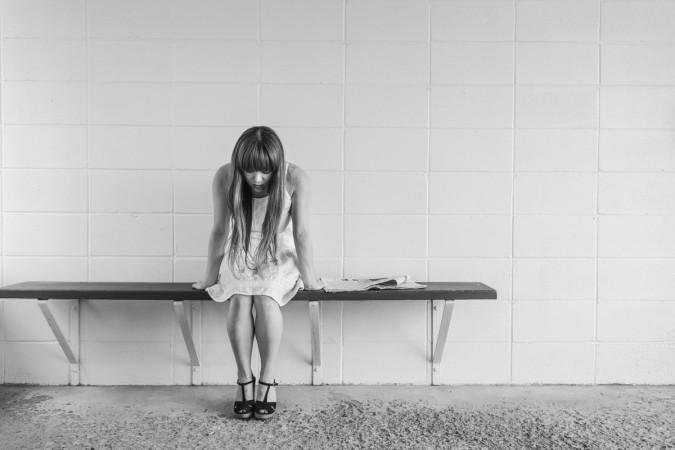
In Bangalore, Sunil (name changed), a 26-year- old IT professional often finds it difficult to maintain a work-life balance. Few months ago, he realised he is unable to cope with everyday pressures. Working day and night without much results had left him hopeless. Later on, Sunil started experiencing auditory hallucinations. Finally, he decided to pay a visit to a psychiatrist. But he also requested to delete all his medical records.
Also Read: Thirsty King Cobra saved after drought-hit villagers offer it a bottle of water! [VIDEO]
Not only Sunil but many people are afraid of discussing mental issues publicly due to the social stigma attached to it.
According to a study conducted by World Health Organization (WHO), over five crore Indians suffered from depression and over three crore suffered from anxiety disorders in the year 2015. India accounted for the highest number of suicides in the world in 2012, as per a report published by WHO in 2014. The report said one person commits suicide every 40 seconds globally.
Dr. Pallavi Arvind Joshi Consultant Psychiatry, Columbia Asia Hospital, Whitefield consults, said around 70-80% of people that come to her suffer from frequent episodes of depression and anxiety.
"Many patients would request not to mention their names in the record or would ask to give normal subscription as they do not want anybody to know that they are consulting a psychiatrist. Also, there are times when psychiatrists or psychologists would be asked to remove name boards from their clinics so that the patients visiting are unaware that he/she is visiting a psychiatrist," said Dr. Pallavi.
"Depression is the leading cause of suicide not only among females but also in males. It is important to remove the social stigma attached with mental health and get external help when required. We live in a technology advanced world where the challenges of everyday life are difficult to overcome. Not being able to handle work related stress, meet family expectations or unable to cope up with everyday pressure leads to people taking extreme steps," she added.
Some of the symptoms of depression include change in appetite, prolonged sadness, trouble concentrating, changes in sleeping pattern, inactiveness, loneliness, worthlessness – all symptoms lasting for a minimum period of 2 weeks.
Dr. Pallavi explains some of the leading causes of suicides among people:
- Extreme form of depression: Extreme form of depression along with social isolation is one of the major causes of suicide. When people are not able to handle stress, they isolate themselves, think nihilistically which many a times may lead to committing suicide.
- Auditory hallucinations: People suffer auditory hallucinations where they hear false perceptions of sound, voices repeatedly which command them to do self-harm. In such cases a lot of patients make up their mind to commit suicide and it's important that they get help on time.
- Impulsive behaviour: People with terrible anger and impulsive behaviour are not able to vent their frustration which in many cases may lead to them taking extreme steps.
- Unexpected outcomes: When people with poor coping mechanism are faced with unexpected situations like bad exam results, job insecurity or relationship troubles, they hold on to suicide as the only option.
- Hopelessness: When people turn completely hopeless about their future they think of attempting suicide.
- Heredity: Some people are genetically vulnerable to depression with a family member suffering with depression. There are cases where people suffer from regular episodes of depression because of family history where a family member has attempted suicide in the past.
"Majority of depressed people attempt a pre-planned suicide where they isolate themselves from people and undertake measures that nobody gets to know about it," said Dr Pallavi.
"Some people would give initial hints where they would distribute their prized possessions to people, complete unfinished tasks or will hint in their conversations with near and dear ones. It is important that we talk about it and provide support to people facing mental trouble. Depression if identified early, can be treated and steps can be taken to prevent suicides," she elucidated further.
Measures to prevent depression and anxiety:
- Regular exercise: Exercising regularly can help people cope with pressure, stress and anxiety. Exercise helps in improved blood circulation in the body, release stress and pressure of day-to- day life. Moreover, regular exercise helps in secretion of positive hormones and boosts the feel-good factor.
- Healthy diet: A balanced diet including two fruit servings and milk is important to be healthy. In some cases, people who suffer from depression tend to eat more. Controlling of eating habits can help them relieve pressure. Try to include plenty of green vegetables like spinach and fruits as it helps ease depression.
- Set goals: When a person is depressed he/she might not feel like doing anything. The feeling of hopelessness can lead the person to take drastic steps. Therefore, it is important that people set small goals and accomplish them to boost a sense of self-confidence.
- Get in a routine: When you feel, distressed try structuring a routine for yourself. Focus on your routine and follow it regularly. This will help you achieve positive results for yourself and you will feel happy.
- Get enough sleep: Sleep is an important part of our lives. While depressed or worried, people might find it hard to get sound sleep. Therefore, it is important to make some changes in your daily routine like exercising, brisk walking, attending dance classes or pursuing long awaited hobby. Take all distractions out of your bedroom and make sure there is no TV or computer in your bedroom. Try to keep your phone away and go to sleep early.









!['Had denied Housefull franchise as they wanted me to wear a bikini': Tia Bajpai on turning down bold scripts [Exclusive]](https://data1.ibtimes.co.in/en/full/806605/had-denied-housefull-franchise-they-wanted-me-wear-bikini-tia-bajpai-turning-down-bold.png?w=220&h=138)



